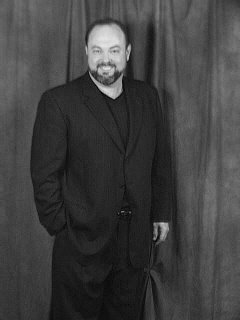Below is an article I wrote recently for an internet publication. I feel strongly about this particular theological difference between the East and the West and wanted to share it with my current readers. I will be interested in your comments.
SINNERS IN THE HANDS OF A LOVING GOD
What if freedom were worse than punishment? What if love was more fearful than hatred? These seeming paradoxical statements accurately reflect the perspective of our Orthodox faith on heaven and hell, eternal life and eternal damnation.
The Orthodox perspective on God's judgment and our eternal destiny, whether heaven or hell, uniquely preserves the biblical teaching that all humanity is created in God's image and is meant to be with God forever. The Church through the ages has preserved and declared a truth that seems to be a paradox: God made us free, free to choose Him or reject Him – AND He loves us forever, regardless of our choice.
But how can we say God loves all of us equally when we know the Church teaches that some of humanity will really spend eternity in hell? Isn't God angry with those people who reject Him? Don't our sins offend God and earn His wrath?
The startling truth is that our behavior has no power over God; it does not disturb His eternal peace. God is always at peace, and He is always loving. Your obedience does not “please” Him and your disobedience does not “offend” Him. He is eternally free from passions and loves you unconditionally. The question of your eternal salvation lies in how you will respond to this eternal Love. Do you embrace it with joy, or do you writhe in torment in the loving embrace of God?
In light of this Orthodox understanding, how are we Orthodox supposed to understand Paradise and Hell? I believe there are three foundational truths that must under gird our Orthodox Christian understanding.
First, God is FREE. The paganism of ancient Greek philosophy taught that matter was eternal, and the gods were bound by “necessity” to act in certain ways. The gods of our pagan past were not free. They were slaves to “necessity.” But the Orthodox understanding about God, the Trinity, is entirely different. God is free. He is not bound by tragic necessity. He forgives the sinner unconditionally. Since God is essentially and foundationally free, He is not forced to punish or reward. In fact, the Last Judgment is not about punishments or rewards at all. It is about revealing in the Light of God’s eternal presence who we really are at our very core.
Second, Humanity is FREE. We were created, all of us, in God’s image, and God has given us His freedom. Since He is not enslaved to any “necessity,” we are also free from any sort of determinism, of fate. Adam’s sin did not make us all “guilty” of wrongdoing as much at his rebellion passed on to us our fatal handicap of mortality, which tempts us to dominate others and deny God in our attempt to escape death by our own power. Christ comes to deliver us, not from sin, but from the consequence of sin – from that death that we can never escape by ourselves. At the Common Resurrection we will all be raised, good and evil, holy and unholy, righteous and unrighteous, and come face to face with the loving God. We will abide throughout eternity with our free choice to either love God and want Him above all else or our free choice to live self-centered, rebellious lives. Either way, we will not escape the consequences of our free choice.
Finally, God’s love is FIRE. Hebrews 12:28, 29 says “since we are receiving a kingdom which cannot be shaken, let us have grace, by which we may serve God acceptably with reverence and godly fear. For our God is a consuming fire.” Coming into God’s uncreated Presence should cause us to seriously re-evaluate our own lives, our attitudes, and our actions. There will come a day when He will no longer mercifully shield us from the full, blazing radiance of His uncreated Presence.
This is what St. John meant when he said that, at the Second Coming, some will beg the mountains to fall on them to hide them from Christ the Lamb (see Revelation 6:12-17). This fire of God’s love warms the man who loves God and torments the man who rejects God. But we’ve always known what fire does. Fire purifies gold and consumes wood. It softens wax and hardens clay. The fire of God’s unconditional love does the same for a man – it either purifies him or torments him, and it either softens him or hardens him. What that man is made of – what he has made of himself – determines the effect of the fire of God’s love.
We live in a modern world where people either believe that God is nothing more than a senile grandfatherly figure, easily swayed with sentiment, or a Divine Terrorist dangling souls over the pit of hell to guilt or shame men into proper behavior. The truth is both more awesome and more terrible. God is a loving Lord Who will not diminish Himself to accommodate our weakness. Rather, He invites all of us to be transformed by His loving grace into a person who can live joy filled lives in the fire of His uncreated Presence. This invitation is extended to us here and now. How will you answer?
Why Not Use Ancient Rites?
5 years ago



No comments:
Post a Comment